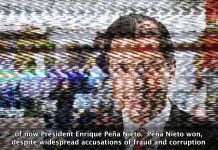The revelation of Project MKUltra has been shrouded in controversy, and with good reason. This covert operation, run by the Central Intelligence Agency, involved the use of illegal human research programs to modify individuals’ behavior and alter their brain functions. Starting in the 1950s, this program used unwitting U.S. and Canadian citizens as its test subjects and involved the administration of drugs such as LSD, as well as hypnosis, sensory deprivation, isolation, verbal and sexual abuse, and various forms of torture.
The research was carried out at numerous institutions, including universities, hospitals, prisons, and pharmaceutical companies. The CIA used front organizations to operate through these institutions, although sometimes top officials were aware of the CIA’s involvement. The controversy surrounding MKUltra stems from the fact that the program involved numerous illegal and unethical activities and was shrouded in secrecy.
The project began in the early 1950s and was officially sanctioned in 1953. It was reduced in scope in 1964, further curtailed in 1967, and finally halted in 1973. MKUltra was allocated 6 percent of total CIA funds, demonstrating its importance and significance to the agency.
The revelation of MKUltra occurred in 1975 when the U.S. Congress investigated the project through the Church Committee and the Rockefeller Commission. However, investigative efforts were hampered by the fact that the CIA director ordered all MKUltra files destroyed in 1973. The Church Committee and Rockefeller Commission investigations relied on the sworn testimony of direct participants and the small number of documents that survived the destruction order.
In 1977, a Freedom of Information Act request uncovered a cache of 20,000 documents relating to Project MKUltra, leading to Senate hearings later that same year. However, much of the information regarding MKUltra remains classified, leading to ongoing speculation and suspicion about the true nature and scope of the project.
Despite the controversy surrounding Project MKUltra, it is an important reminder of the need for transparency and accountability in government activities. The revelation of this covert operation serves as a cautionary tale about the dangers of unchecked power and the need for ethical and moral considerations in scientific research.

































